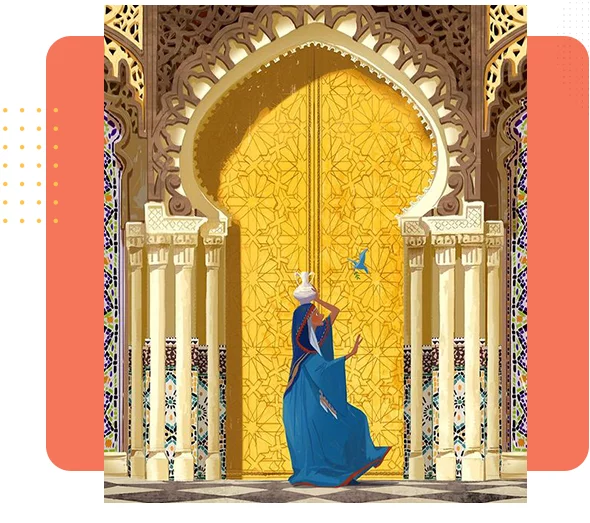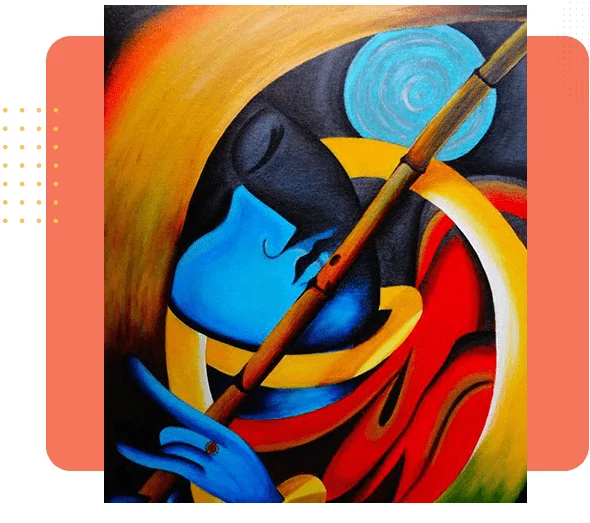Dear Reader,
Thank you for visiting us. In this article we bring you universal insights and wisdom about how Music has influenced us over millennia. We are sure that you will have your own valuable insights. Please share with us in the Share Your Thoughts below the article. Enjoy.
There are many musical instruments, or variations thereof, that are found across the world and are recognisable by most cultures. But when we dig deeper into different cultures and religions, there are plenty of less familiar, uncommon musical instruments as well. World music is a diverse field, and music is a universal language and has been an extremely important component of all cultures and religions throughout human history. It is the lesser-known instruments that constitute the rich diversity and unique value that each religion’s music has to offer. In this article, we bring you universal insights and wisdom about how Music and religion have influenced us over
Music language: A Sacred Story
An old man, who used to sing in front of an Indian Sufi shrine every day, year after year, was once asked: Why is music a daily offering to the divine? Although illiterate, he answered, with the wisdom that comes from the sky and the river: Even when a man is about to commit a murder, if he suddenly hears a temple bell, he will stop in his tracks momentarily. That is because sacred music has the ability to instantly draw us into an inner chamber. It makes us forget ourselves. It instantly connects us to the divine. This deep connection is what makes music and meditation closely linked in many traditions.
Spiritual Music As A Path To The Divine
It is not surprising that spiritual music can be found in every place of worship from time immemorial. Every culture and religion throughout human history has produced its own devotional music, placed very high value on music as an art form, and used it in its religious practice. Music harmonises sounds and rhythms into a singular whole and thus satisfies our cravings for order and beauty.
The church has its choir from which emerged the greatest Western composers of all time…“Straightaway the ideas flow in upon me, directly from God,” said Brahms; the haunting notes of the “azaan,” the Islamic call to prayer across the Arab world, transport us into a contemplative state; the Guru Granth Sahib, the holy book of the Sikhs, is entirely set to ragas and the verses are sung all day and night; in villages across India, Kabir’s wisdom is set to song; Tibetan chimes set a meditative tone at monasteries; while temples have their own versions of music and meditation.
In short, spiritual music is universally the medium that is a shortcut to the divine. It has the ability to cut through differences. There are so many examples of Muslim musicians singing devotional music of Hindu hymns, or Hindus singing Sufi verse. Spiritual music allows two or more people to cohabit a shared world that is equally accessible and intelligible to all, despite whatever differences may exist between these people. We can then explore these worlds and find satisfaction in the patterns that emerge before our minds.
This is the power of music and healing. It is not only enjoyable but conducive to healing on both an individual and deeply collective level. It is a non-verbal form of communication that can evoke unspoken bonds between souls.

The Brain And The Beats Of Music
Neuro-scientists, using fMRI studies, have identified neural pathways that react almost exclusively to the sound of music — any music. That’s why dancing with our bodies to spiritual music or devotional music is ubiquitous across the globe: without knowing the language, we can still fully understand and appreciate what is being expressed in a piece of music.
There are only five to seven musical notes, yet the combinations of these notes give rise to an infinite number of melodies. This says a lot about us-how each 7 billion of us can be so unique despite our commonalities!! This universal language of music transcends all boundaries and breaks down barriers of all kinds: race, religion, culture, history, etc. If we are to learn to love and understand each other more, music is a universal language and the best medium.
Religious Mentions of Music
Christianity
“Sing and make music from your heart to the Lord.”
–The New Testament (Ephesians 5:19), Christian text
Music in Islam religion
“Whoever says that all music is prohibited, let him also claim that the songs of the birds are prohibited.”
— Al-Ghazali, Muslim theologian and philosopher
“There are many ways to the Divine. I have chosen the ways of song, dance, and laughter.”
–Rumi, Sufi mystic and poet
Judaism Music
“Praise the Lord. Praise God in his sanctuary; praise him in his mighty heavens. Praise him for his acts of power; praise him for his surpassing greatness. Praise him with the sounding of the trumpet, praise him with the harp and lyre, praise him with timbrel and dancing, praise him with the strings and pipe, praise him with the clash of cymbals, praise him with resounding cymbals. Let everything that has breath praise the Lord. Praise the Lord.”
—Hebrew Bible (Psalm 150:1-6), Jewish text
Music in Baha’i
“It is the music which assists us to affect the human spirit; it is an important means which helps us to communicate with the soul.”
—Shogi Effendi, Baha’i leader
Buddhism: Music In Meditation
“Birds’ songs express joy, beauty, and purity, and evoke in us vitality and love. So many beings in the universe love us unconditionally. The trees, the water, and the air don’t ask anything of us; they just love us.”
— Thich Nat Hanh, Buddhist monk and author
“Music comes closest to meditation. Music is a way towards meditation and the most beautiful way. Meditation is the art of hearing the soundless sound, the art of hearing the music of silence—what Zen people call the sound of one hand clapping.”
–Osho, Indian mystic
Hinduism And Music
“Drama and music are by themselves religion; any song, love song or any song, never mind; if one’s whole soul is in that song, he attains salvation, just by that.”
–Swami Vivekananda, Hindu monk
Music in Daoism
“Wen was already an accomplished musician by the time he went to study with Hsiang, but he realized that perfection in technique alone does not make great music. When he was finally able to dissolve the duality between himself and the music, the songs he played not only had the power to create moods but literally changed reality.”
—Lieh-tzu, Daoist text

Confucianism and Music
“Be stimulated by the Odes, take your stand on the rites and be perfected by music.”
—The Analects (8:8), Confucian text
Universal Language of Music in Other Areas
Music In Art and Literature
“Communication, entertainment, and psychological healing of the community occur through aesthetic means, at the deeply embodied level of rhythm and movement.”
—Michelle Voss Roberts, scholar of theology
“Music expresses that which cannot be said and on which it is impossible to be silent.”
–Victor Hugo, French poet and novelist
Music In Philosophy and Theology
“After silence, that which comes nearest to expressing the inexpressible is music.”
—Aldous Huxley, novelist and philosopher
“Music is the universal language of mankind.”
— Henry Wadsworth Longfellow, Poet and Harvard Professor
Related reads
False narrative | Religious wear | Charioteer | Fire as a symbol | Beyond Happiness
For more reflections on personal growth, wisdom and happiness, browse through our website.


